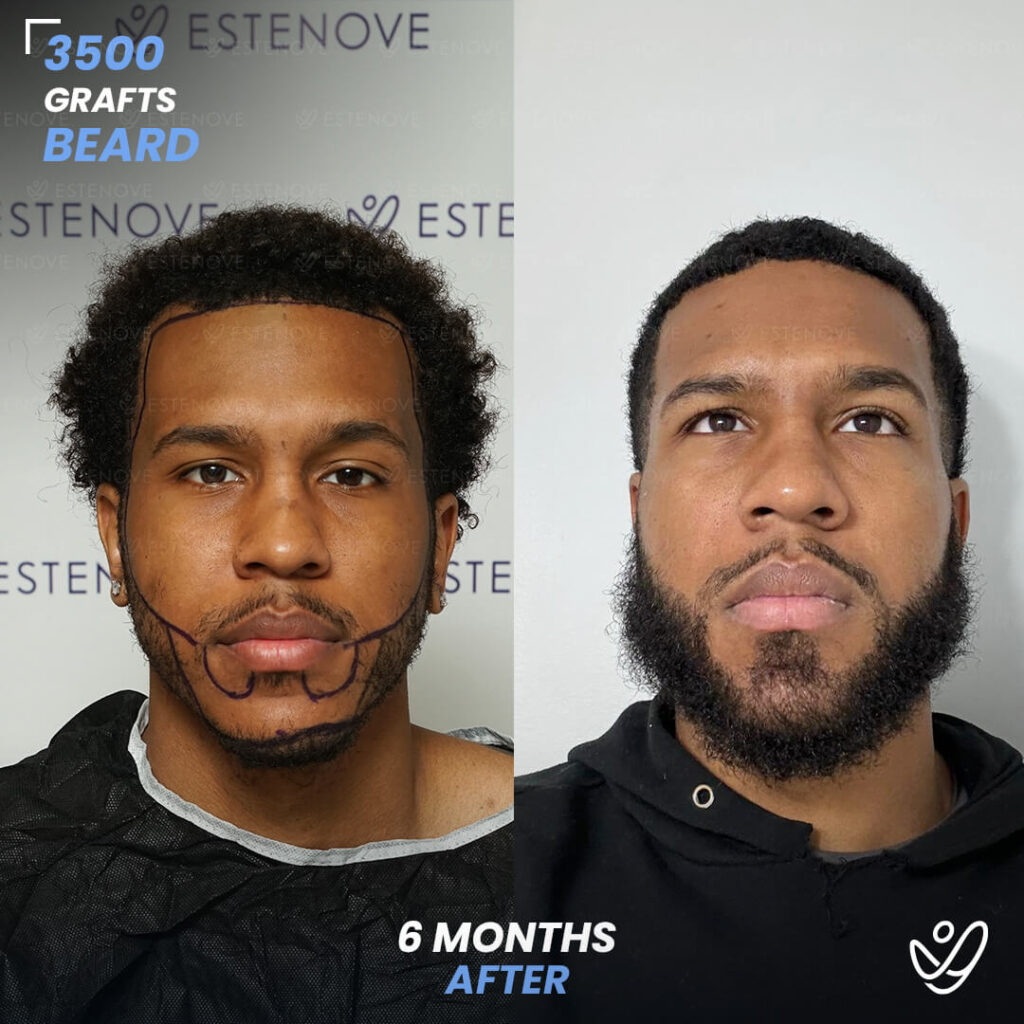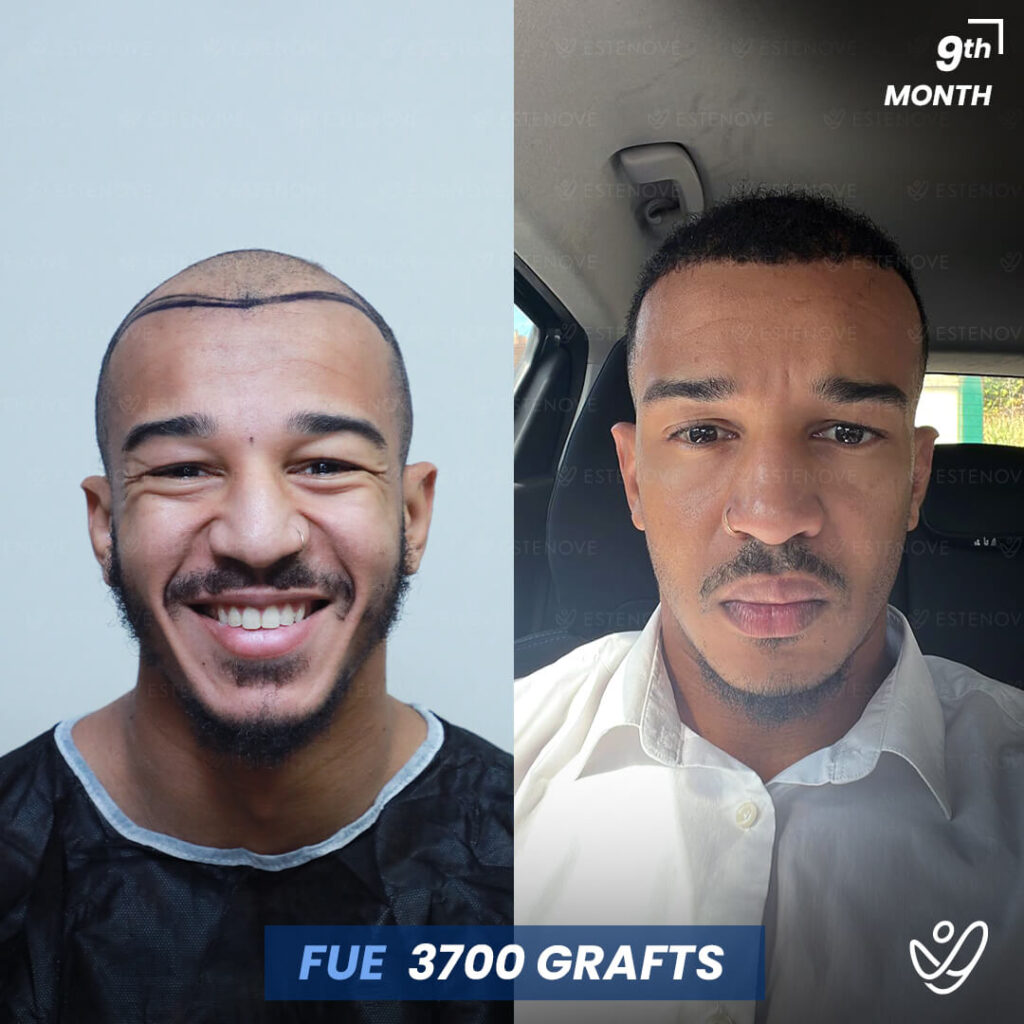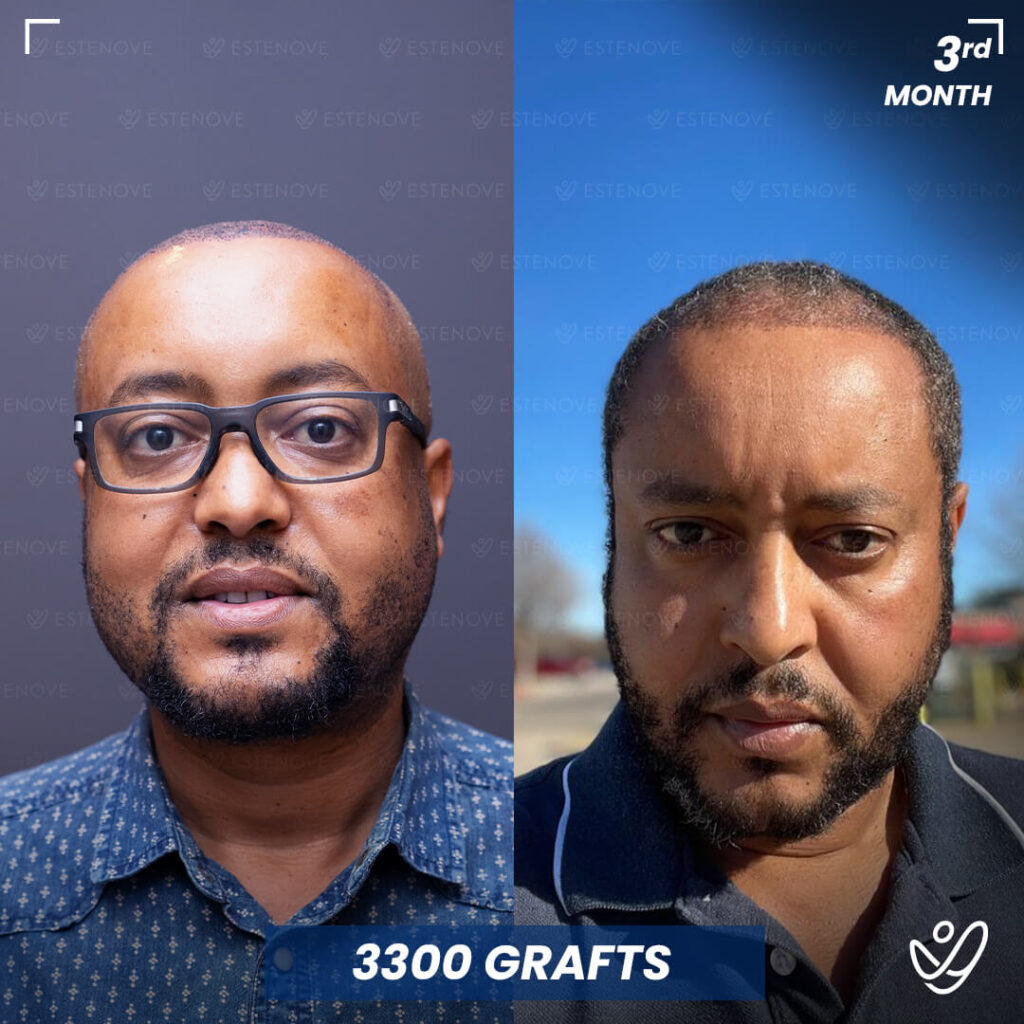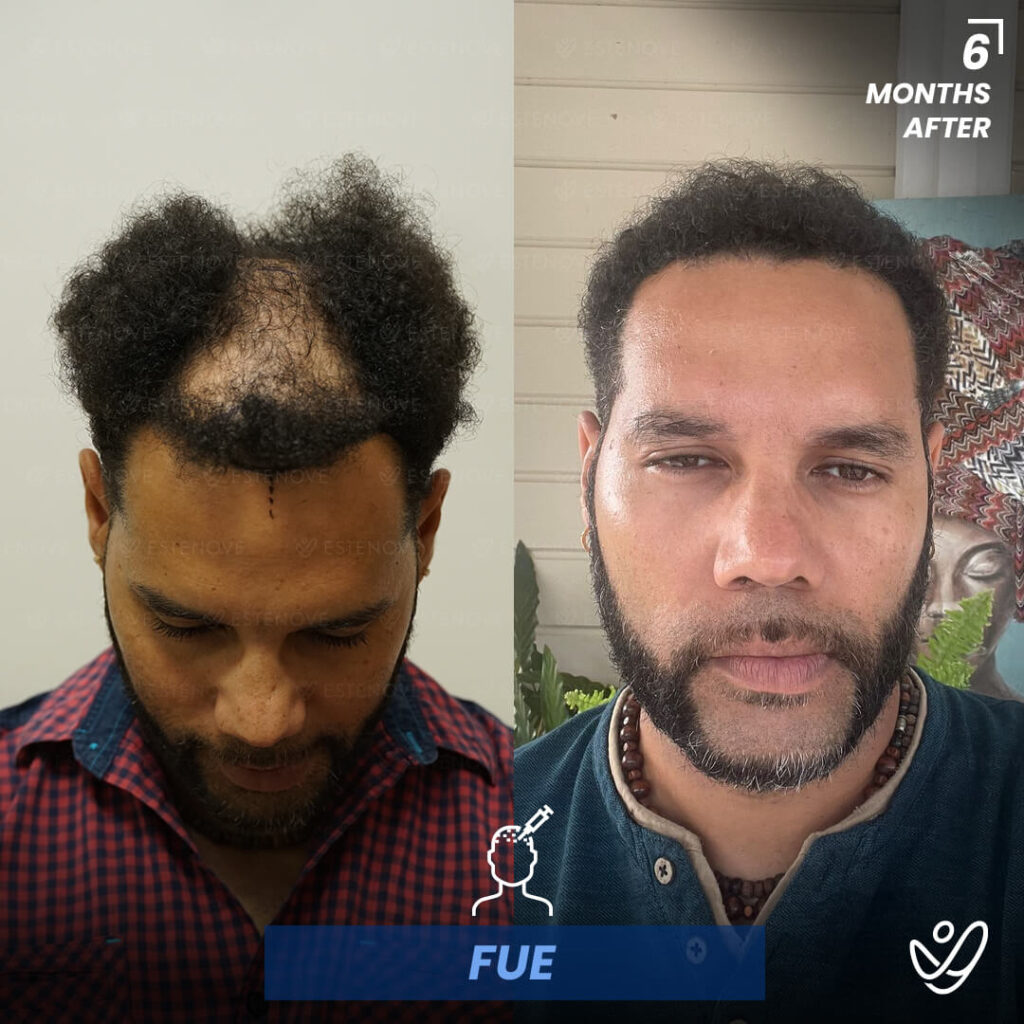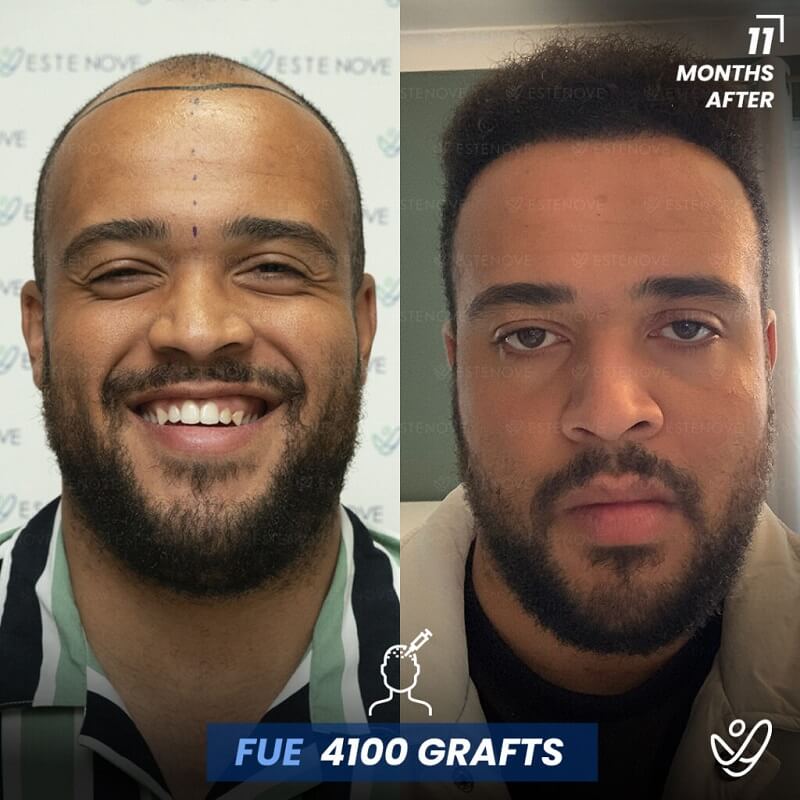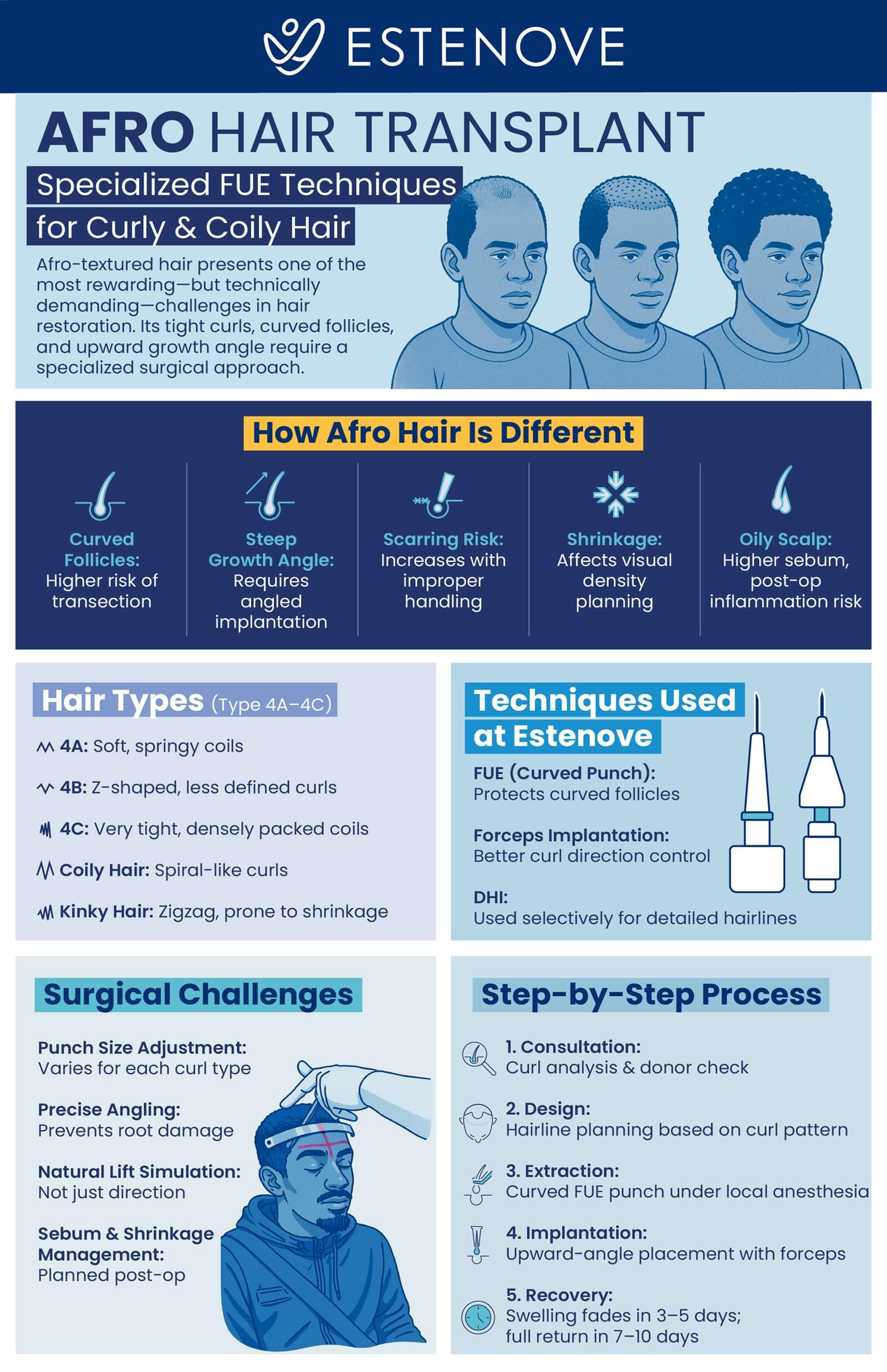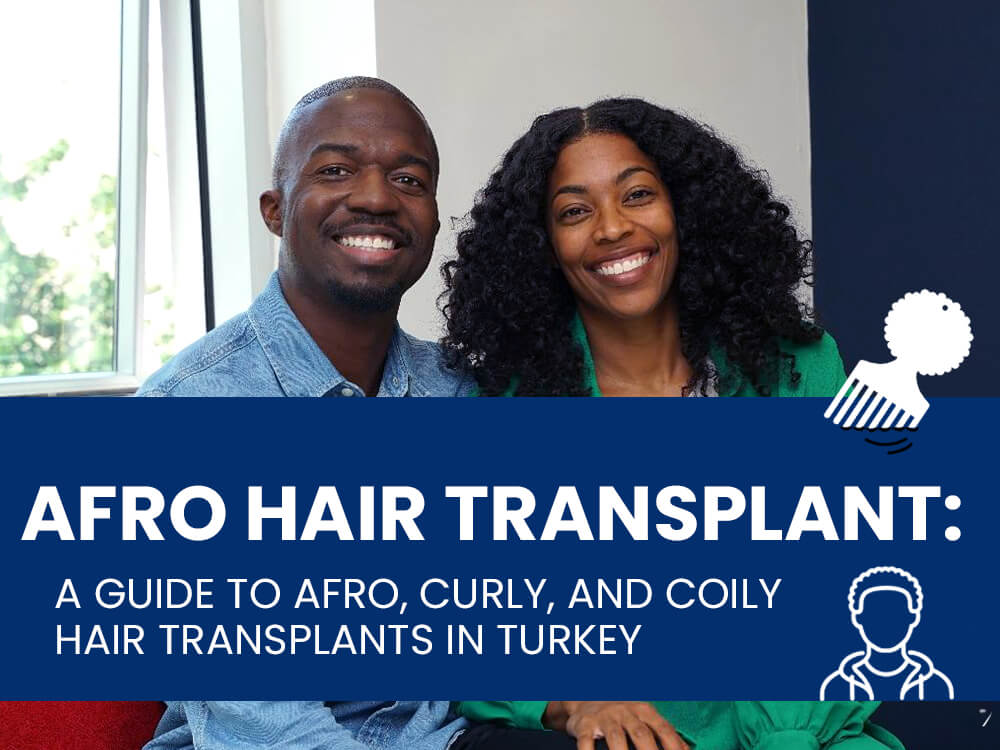
Afro-textured hair presents one of the most rewarding—but technically demanding—challenges in hair restoration. Its tight curls, curved follicles, and upward growth angle require a specialized surgical approach. In this guide, we explore how Estenove performs Afro hair transplants in Turkey using tailored FUE techniques, discuss curl types, and highlight the differences that set these procedures apart.
How Afro Hair Differs from Other Hair Types
Compared to straight or wavy hair types, Afro hair requires a completely different strategy. Here’s why:
- Curved Follicles: Root curvature increases risk of transection during extraction.
- Implantation Angle: Grafts must be placed at steeper angles to replicate natural growth.
- Scarring Risk: Higher if handled improperly, especially in thickened or sensitive scalps.
- Shrinkage: Afro hair often appears shorter than it grows, which affects visual density planning.
- Higher Lipid Concentration: Makes the scalp oilier and more prone to post-op inflammation if unmanaged.
Afro Hair Types: 4A, 4B, 4C and More
Understanding the curl type helps your surgeon plan the angle, density, and extraction technique. Here’s a quick breakdown:
- Type 4A: Soft, coiled, and bouncy curls
- Type 4B: Z-shaped curls with less definition
- Type 4C: Tight, densely packed coils with minimal definition
- Coily Hair: Defined by very tight, spring-like curls
- Kinky Hair: Extremely tight zigzag patterns, more prone to shrinkage
At Estenove, we assess your curl pattern during the consultation to determine the best method for donor extraction and recipient placement.
Techniques Used in Afro Hair Transplant
At Estenove, we use FUE with curved-tip micro punches for Afro hair patients. This technique ensures precise extraction of follicles without cutting or splitting the curved grafts.
- FUE: Ideal for curved follicles; enables angle adaptation per graft
- Forceps Implantation: Better suited for varying curl direction and density control
- DHI: Used only in selective Afro cases where hairline detailing is a priority
Want to compare techniques? See our FUE vs DHI guide.
Ready to restore your hair?
Get in touch anytime — our experts are here 24/7 for a free online consultation
Surgical Challenges & Expert Considerations
Performing a successful Afro hair transplant requires a clinic experienced in:
- Adjusting punch diameter for different curl intensities (4A vs 4C)
- Avoiding root transection through careful angling and graft scoring
- Placing hair to simulate natural lift, not just direction
- Managing higher sebum production and shrinkage perception post-op
At Estenove, these factors are accounted for during extraction and implantation to ensure natural results and low scarring risk.
What the Process Looks Like
- Initial Consultation: Hair type analysis, donor density evaluation, curl pattern mapping
- Planning & Design: Custom hairline design considering curl direction and head shape
- Extraction: Curved FUE punch harvesting under local anesthesia (or needle-free)
- Implantation: Forceps or pen placement into recipient sites at upward angles
- Recovery: Light swelling fades in 3–5 days; full return to daily life within 7–10 days
Afro Hair Transplant Cost in Turkey
Afro hair transplant procedures are more technically demanding, but Turkey remains the most affordable destination globally. At Estenove, all-inclusive packages (accommodation + transport + medical care) are priced as follows:
| Country | FUE Cost | DHI Cost |
|---|---|---|
| Estenove / Turkey | $3,750.00 | $3,750.00 |
| Turkey | $2,800.00 | $4,500.00 |
| Mexico | $4,000.00 | $5,000.00 |
| Thailand | $4,500.00 | $5,500.00 |
| Poland | $6,000.00 | $6,500.00 |
| Korea | $6,000.00 | $6,800.00 |
| Brazil | $6,000.00 | $8,000.00 |
| UK | $9,500.00 | $8,000.00 |
| Ireland | $9,500.00 | $8,000.00 |
| Australia | $9,500.00 | $10,500.00 |
| New Zealand | $9,500.00 | $10,500.00 |
| Germany | $10,000.00 | $11,500.00 |
| USA | $14,000.00 | $12,000.00 |
| Canada | $14,500.00 | $12,500.00 |
| France | $16,000.00 | $19,000.00 |
| Duration | 2-8 Hours | 5-9 Hours |
| *The costs provided are average estimates for 4,000 grafts. Get more detailed info at Hair Transplant Cost in Turkey. | ||
Before & After Afro Hair Transplant Results
Our Afro-American patients report high satisfaction with natural results, especially when treated with manual FUE. See our before and after gallery for real outcomes on 3,000+ graft cases using curved punches.
Book Your Consultation
Choosing the right clinic makes all the difference—especially for Afro hair transplants. At Estenove, we combine surgical precision with an understanding of hair texture, curl type, and scalp physiology to deliver natural results tailored to you.
Book a free consultation to speak directly with a specialist experienced in Afro hair restoration.

